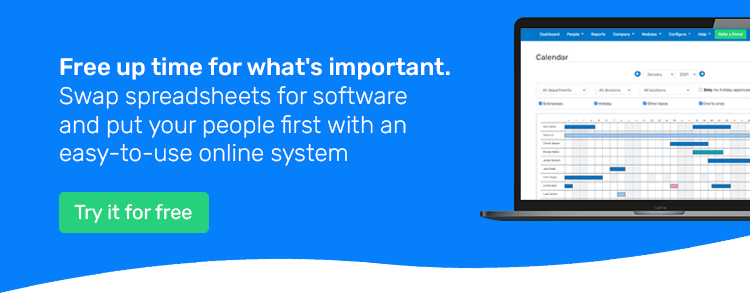Want something done? Then of course, you need to ask a busy person. It’s an old saying but has more than a grain of truth in it. The busiest people are often the most organised – they know how to accomplish tasks with the minimum of fuss and do so regularly.
Being organised at work isn’t a dark art. It is simply a case of developing certain self-management skills and is something that everyone can learn. Once learnt, these self-management skills will stand you in good stead for your future career and personal life.
What are self-management skills?
Self-management skills are a range of skills that help us control the way we behave. They include our behaviour towards others, our reactions and how we manage our own time. We develop self-management skills throughout our lives, often in response to the situations we find ourselves in. They are especially relevant to work because strong self-management skills mean an individual will need less supervision and can be relied upon to deliver a good piece of work.
3 of the most important self-management skills that companies need from their employees are:
- Initiative – the ability to do something without being told what to do.
- Time management – knowing how to plan your time and being aware of how long it will take you to do things.
- Accountability – accepting responsibility for your own actions and understanding the impact you have on the work you do and the rest of the business/team
Different roles need different self-management skills
Self-management skills aren’t something you learn and can then move on from. You need to work on them throughout your life. Here are a few examples.
Many junior employees find that they struggle with self-management skills. Being self-directed and organised can be difficult, especially with a flood of emails, constant instant messages and numerous priorities.
Hybrid working creates difficulty for some more experienced employees. Without a manager or supervisor in the same space, it’s all too easy to get distracted by quick household chores or the lure of the internet, instead of focusing on your task list.
Being promoted to a more senior role can result in an employee needing to enhance their self-management skills. Instead of being told what to do, they must now set their own direction – and that of their team. This can be a big shift for many managers and is more difficult than they might expect.
Benefits of being more organised at work
Becoming more organised at work is a result of several self-management skills working together. Although it takes time to develop these skills, you will quickly see the benefits:
You’ll achieve more. Be more organised and you will be able to complete your work more quickly and help your team and company reach its goals.
You’ll learn more. The faster you complete your work, the higher your chances of being given new projects or learning new skills. As well as making your job more interesting, you’ll become more skilled and a more valuable employee.
You improve your chances of progression. Being organised, and demonstrating initiative and accountability puts you in a better position for promotion, joining new projects and receiving valuable training.
You can improve your work/life balance. Having the initiative to work more effectively will give you more control over your working week. This may mean you are able to complete work sooner, leaving you time to spend on things that are important to you.
How to be more organised at work
Self-management skills can be learnt by almost anyone – think of them like a muscle. The more you use them, the faster they’ll grow. That said, with conflicting priorities and a long to-do list, being organised at work can feel increasingly difficult.
There’s no mystery to becoming more organised at work, just a few simple techniques and the right mindset. Here are three of the best ways to start becoming more organised.
1. Be clear on your goals
If you have lots of individual and conflicting tasks, work can quickly feel overwhelming. This is where being clear about your goals is vital. Work with your manager or your team to agree on your priority goals. Your objectives will give you a guide as to what you should be focusing on and working with others will help you identify which overall goals are the most important.
2. Be ruthless about prioritisation
Once you have identified your goals, it’s time to start prioritising your work. Three of the best ways to do this include:
- Using an Eisenhower matrix to identify which tasks are urgent, important, not urgent and not important. This will help you decide which tasks need to be completed immediately, which ones to schedule, which can be delegated or deprioritised and which tasks can be removed from your working week altogether.
- Time blocking will help you get through your work list more quickly. Start by using your diary to dedicate periods of time in which you will complete or making strong progress on a dedicated task. It’s likely that you will need to dedicate several hours at a time – half an hour or so is rarely enough to make any headway.
- If you have lots of small tasks to do which are similar, try batching For instance, you could handle all of your invoice approvals in one session per week, you could set aside an hour each morning to respond to emails or dedicate a certain amount of time each week to creating social media posts. Doing this allows you to work more efficiently, helping you save time and energy.
3. Remove distractions
Although multi-tasking is often seen as a positive behaviour, the truth is that it’s very unhelpful if you want to become more organised and effective. Neuroscientists tell us that in truth, humans are meant to focus on one task at a time. So, if you’re checking your phone for notifications, responding to instant messaging, chatting with a colleague and trying to work, something’s going to give. Become more organised at your job by becoming more disciplined about your distractions. This could look like:
- Turning off your email while you work
- Muting your instant messaging notifications and setting your status to ‘busy’ when you need to focus
- Putting your phone on silent and in another room/place so you can’t constantly check it
- Working in a place where you know you won’t get distracted by your colleagues
- Telling your team that you’re focusing on a task and can’t respond instantly.
Anyone can become more organised at work – it just takes a bit of self-knowledge and plenty of practice. However, the rewards are clear to see – a more satisfying career, better work-life balance, skills you can use in all parts of your life.
Breathe’s HR task management software helps you plan and prioritise your HR-related tasks with ease, helping make your job easier.

Author: Laura Sands
Laura is a writer who enjoys getting into the detail of subjects and sharing that knowledge with snappy, interesting content. When not typing away, she enjoys walks in the woods and curling up with a good book and mug of something hot.
Posted on 10 January, 2023
By Laura Sands
in Performance and productivity
Performance and productivity




